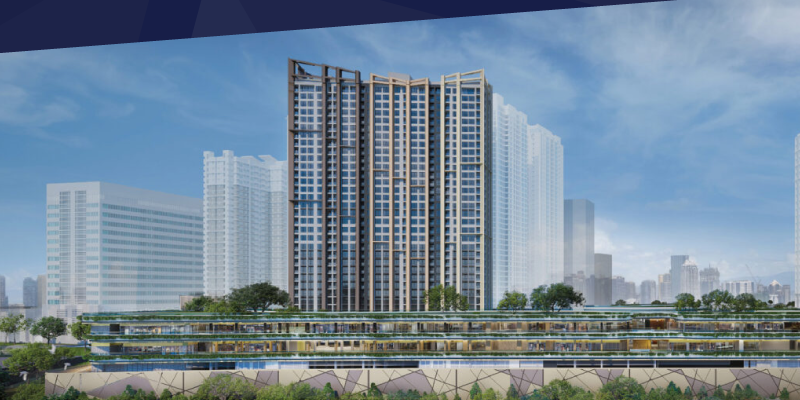Metro Manila is the heart of everything—a sprawling megacity where you can find anything, from towering malls and hidden food gems to bustling business hubs and quiet cultural enclaves. But let’s be honest: it can get overwhelming. The traffic, the crowds, the non-stop energy—it’s a city that never really sleeps, and sometimes, you just need a little breathing room.
On the other hand, moving to the countryside promises peace but often comes with trade-offs: long commutes, fewer job opportunities, and limited amenities can make full rural living challenging.
This is where Cavite shines. It strikes the perfect balance—close enough to Metro Manila for easy access but far enough to offer a quieter, more family-friendly lifestyle. With top-rated schools, thriving commercial centers, and a range of real estate options, Cavite is an ideal place to settle down and enjoy the best of both worlds.
How to Find the Right House & Lot in Cavite
Choosing a home for your family is a big decision—one that goes beyond just picking a beautiful house. You’re choosing a space where your family can grow and create lifelong memories. Cavite offers plenty of real estate options, but how do you narrow down the choices? Here’s a step-by-step guide to help you find the perfect house and lot that fits your family’s needs.
1. Define your family’s priorities
Before you start browsing listings, take a step back and think about what matters most to your family.
Lifestyle needs: Do you need a dedicated work-from-home space? A big backyard for the kids? A quiet neighborhood for peace of mind? Identifying your must-haves will help you filter out properties that don’t fit your lifestyle.
Family size: Think beyond your current needs and plan for the future. If you’re expecting to grow your family or have extended family members living with you, choosing a home with extra bedrooms or flexible spaces will be a smarter investment.
Proximity to essentials: Location is key when choosing a family home. Prioritize properties that offer easy access to:
- Schools – Having a good school nearby saves you from long commutes and ensures your children get a quality education. Cavite is home to several reputable schools across the province.
- Workplaces – Shorter travel times mean less stress and more time spent with family.
- Hospitals and clinics – Easy access to healthcare is crucial, especially for families with young children, elderly members, or pets.
2. Consider the location
Cavite’s accessibility to Metro Manila is one of its biggest selling points, but not all locations within the province are the same.
Proximity to Metro Manila: If anyone in your family works in the city, accessibility is key. Choose a home near major highways like SLEX, CAVITEX, and CALAX. Some areas in Cavite offer a much smoother commute than others.
Transportation options: If you rely on public transport, prioritize areas with access to bus terminals, PUV routes, and the upcoming LRT-1 Cavite extension, which will improve connectivity to Metro Manila.
Safety and security: Your family’s safety should always come first. Research the neighborhood’s crime rate, consider properties in gated communities with 24/7 security, and visit the area at different times of the day to get a better sense of the environment.
Flood-free zones: Since typhoons and heavy rains are common in the Philippines, make sure your chosen location isn’t flood-prone. Consult flood maps and local government to ensure your family’s home stays safe and dry.
3. Set a realistic budget
A dream home should also be financially sustainable, so make sure a property fits your budget before falling in love with it.
Determine affordability: Start by assessing your total financial capacity. Factor in upfront costs like the down payment and reservation fee, along with ongoing expenses such as monthly mortgage payments.
Watch out for hidden costs: Homeownership comes with additional expenses like property taxes, homeowners’ association dues, maintenance costs, and utility bills. Ensure you account for these in your overall budget.
Explore loan options: Many Filipino families opt for loans to finance their homes. Some options include:
- Bank loans – Ideal for those with stable incomes and strong credit histories.
- PAG-IBIG housing loans – A government-backed option offering lower interest rates for qualified members.
- Developer in-house financing – Some real estate developers offer flexible payment terms that might better suit your needs.
4. Evaluate community amenities and features
Beyond the house itself, consider the community where it’s located. A well-planned neighborhood enhances your quality of life and can even add long-term value to your property.
Recreational spaces: Parks, playgrounds, and sports courts give kids room to play and offer families places to bond. Some neighborhoods even feature clubhouses and swimming pools. Outdoor activities not only promote health but also help build a stronger community connection.
Shopping and dining: Having malls, supermarkets, and restaurants nearby makes daily errands and weekend leisure easy and convenient. In Cavite, popular spots include Vista Mall, SM City Bacoor, and Ayala Malls in Imus.
Community atmosphere: Find a neighborhood that matches your lifestyle. Some communities are vibrant and family-oriented, offering regular events and a strong sense of camaraderie. Others are more peaceful and perfect for those who prefer privacy and quiet.
Future development: New infrastructure and commercial projects can boost both convenience and property values. Watch out for upcoming roads, malls, or public transport developments that could make the area even more attractive over time.
5. Look for trusted real estate developers
Not all real estate developers are the same. Choosing a reputable developer can make a big difference—ensuring your home is well-built, delivered on time, and part of a thriving community.
Research the developer’s reputation: Check their track record. Have they completed similar projects? Are there positive reviews from past buyers? A solid history is a good sign of reliability.
Visit model units: Photos can be misleading. Touring a model unit in person lets you assess the layout, construction quality, and overall feel of the home—helping you decide if it truly suits your family’s needs.
Talk to current homeowners: If possible, reach out to residents in the community. Their firsthand experiences can give you insights into the developer’s reliability, the neighborhood’s livability, and any issues to watch out for.
Comfort, Convenience, and Community in Cavite
Finding the right house and lot is a big step toward securing your family’s future. Cavite, with its perfect balance of city access and suburban charm, offers a lifestyle rooted in comfort, convenience, community, and long-term value.
FNG brings premier Philippine real estate to life with Japanese-inspired excellence. If you’re searching for a house and lot in Cavite, discover Yume at Riverpark—FNG’s inaugural residential community in the area. Designed with families in mind, Yume offers spacious lots, thoughtfully planned amenities, and easy access to everything you need.
Start your journey toward a better future. Contact us today and find your new home at Yume!









